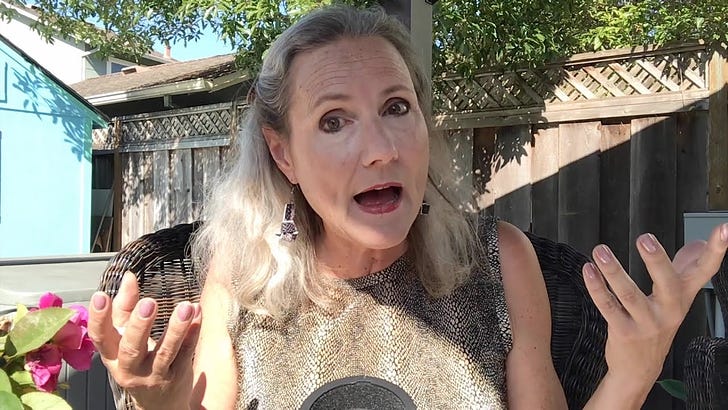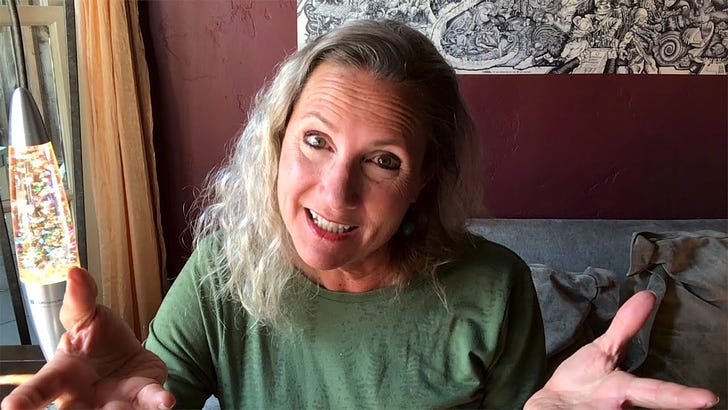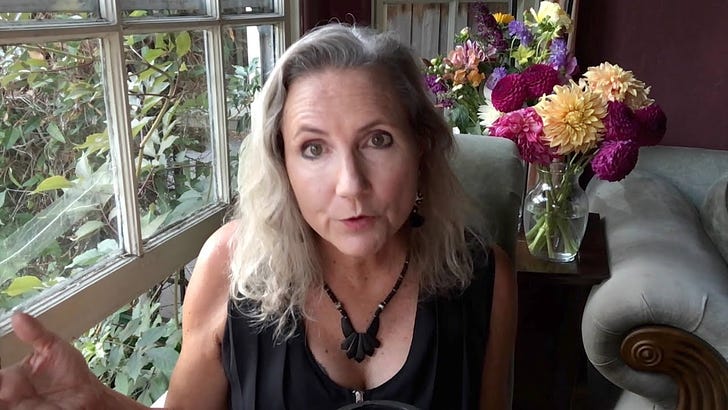Revolutionary Mystics and How to Become One
the gnostic gospel of Philip and other mystic texts
Revolutionary Mystics and How to Become One is a book I was writing in 2005. It took passages from the gnostic gospel of Philip and combined them with lines from A Course in Miracles, the Tao te Ching and mystical poetry from East and West. Then I would write an essay bringing all the elements together. This is the first in that series and thanks to Nefahotep, I’ve added a verse from the Ishi Upanishad. We’re starting a project together looking at Eastern mystical scriptures, and I’m very excited about it.
In the video I give some history of my work with Bible scholars on this particular gospel and why I think it holds a key to a lost Christianity and Judaism. I learned from Max Igan this week that the word Jew doesn’t appear in the Hebrew Bible. It was used by Josephus in War of the Jews to indicate the zealots rebelling against Rome. Was a Jew a follower of Judas the Sicariot, leader of the zealots, also called the Messiah, the Christ, the Galilean, the Nazarene, the Healer?
Let’s begin our analysis of the gospel of Philip with a poem of mine:
mystic currents,
current mystics
A mystic is a cartographer
mapping the ocean floor
from the surface ripples.
We are all born prophets.
To see the future
is no more than
seeing the present
clearly.
Expect prophecy within
your own home.
Listen closer.
A moment lived
in the awareness of death
is a speck of infinity,
exploding.
The answer to the
conundrum:
to be fully human
is to be
fully divine.A Hebrew makes another Hebrew, and such a person is called a proselyte. But someone who calls another does not make them the same as they are. We are who we have always been. One who knows themselves calls others to become who they truly are. Philip 1
The miracle but calls your ancient Name, which you will recognize because the truth is in your memory.
Course in Miracles Text 16:1
Just realize where you come from: this is the essence of wisdom. Tao 14
He in whom it is the Self-Being that has become all existences that are Becomings, for he has the perfect knowledge, how shall he be deluded, whence shall he have grief who sees everywhere oneness? Isha Upanishads 7
Now I become myself. It's taken
Time, many years and places,
I have been dissolved and shaken,
Worn other people's faces,
Run madly, as if Time were there,
Terribly old, crying a warning,
"hurry, you will be dead before --"
(What? Before you reach the morning?
or the end of the poem, is clear?
Or love safe in the walled city?)
Now to stand still, to be here,
Feel my own weight and density!..
Now there is time and Time is young.
O, in this single hour I live
All of myself and do not move
I, the pursued, who madly ran,
Stand still, stand still, and stop the Sun!—May Sarton
1. Coming Into Your Own
The introductory passage of the Gnostic Gospel of Philip denies that Christianity is a new religion, or even a new version of the Hebrew religion. Instead, it’s a paradigm shift that applies to all religions and all people. If I am a Buddhist, authentic being will engender me as a better Buddhist. If I am a Hindu, authentic being will engender me as a better Hindu. If I am a Muslim, authentic being will engender me as a better Muslim. According to Philip, to be a Christian is to help others become who they are.
It doesn’t try to make others like you. It waters the plant, trusting always that the seed is perfectly good as it is. This is a different understanding from the patriarchal Roman Church who developed the "religion" that would come to be called Christianity and destroyed all other evidence. To Philip, Christianity could not exist as a separate thing. It’s a verb that activates the noun without modifying it, the “becoming” that doesn’t want to change you—except to be more fully who you are.
The word proselyte comes from the Greek prosélytos, one who has come over to a place, literally, having arrived (pros- to + ely- have come = one who has come over, or a né-ēlys newly-arrived or new-comer). Philip is saying that a Hebrew convert simply makes another Hebrew, which is a lateral shift in that person from one place to another. That person becomes something that is pre-defined.
But the "one who knows himself" quickens the latent potential in the other simply by being the person they are. Philip’s "converter" is a catalyst, a change agent who unleashes the dormant power in a chemical reaction. They accelerate the process, but the unique properties were in the chemicals to begin with. Something new happens to both in the synthesis. There is no teacher and student, because the one who is newly-awakened (rather than newly-arrived) is as much the teacher of the teacher.
In modern Christian terms, someone who actively converts others is called an evangelist. Evangelist comes from euangélistes, bringer of good news. This good news, historically, also meant taking over the land, the resources, the control of labor and the indoctrination of the children. As John Isbister writes in Promises Not Kept:
The soldiers were followed soon after by the friars, whose sacred mission it was to salvage souls and who succeeded at the expense of wiping out whole cultures. It would be hard to say whether the soldiers or the priests were more destructive. Together, in their search for wealth, hegemony, and spiritual conversion they dominated a continent, destroying millions of lives and subjecting the survivors to servitude.
Philip’s evangelist, however, brings the good news that the person we need to be is who we’ve always been. Who the other needs to be is who they have always been. We don’t need to change who we are, but who we are for, which is inclusively one another.
The word convert, however, comes from con- intensive + vertere to turn. It’s an intensive turn, a 180º shift in direction. It changes your whole purpose in life, not the means by which you accomplish your purpose. For Philip, "someone who calls another does not make them the same as they are." The "one who calls" turns the person around on the same path they were traveling but with a new destination.
The path is the means by which they were traveling, whether a religion or science or art. But the destination is either the independent ego or the inclusive Self. A hospice chaplain told me that there were no good religions and bad religions, there were only good and bad forms of each religion. What was exclusive was bad and what was inclusive was good.
This could be pictured as the spokes of a wheel. In our concept, religions are competing for the conversion of souls, based on whether they give the optimal advantage in the afterlife. We're looking for the quickest path to enlightenment, the one that places the most distance between us and the muddled masses. We're facing outward on our spoke of the wheel and running on it as fast as we can. Perhaps the Holy Spirit is a centrifugal force which keeps us from making any progress when we're running away from each other—the Holy Thwarter.
The "one who calls" turns us around to move towards one another. It doesn't matter which path or spoke we're on, and which path or spoke they're on. It doesn't matter which vocabulary we use when we call—the vocabulary of a particular religion or science or philosophy or art or agriculture or metalworking or haircutting or garbage collection. They're all equally good. We can hear the person call because they're facing us. We can't see them when we're facing out. But when we turn, we also become "one who calls" from our unique but equally essential "spoke" on the Wheel.
This form of Christianity isn’t a religion. It’s a change of heart, a change of mind, which requires no change of affiliation. We don’t have to convert in order to be a good Christian. We can be Christian through the religion we were born into or that we choose. Conversely, we can call ourselves Christian and still not “become” who we are, especially if we think that being Christian means we’ve already arrived.
A process of becoming is never static, can’t be fixed for all people and times as dogma, and is never accomplished. We stop being Christians the moment we stop asking questions and think we know the answers. “Blessed are the seekers” doesn’t imply “for someday they’ll be saved like us.”
"We are who we have always been" has a hidden meaning: there are no newcomers. This definition gives no superiority to those who were already there. How can you come as a stranger to your own family? How can you be a recent arrival to your own home? Status based on seniority and lineage was critically important in ancient Rome, and for the Biblical Hebrews. Philip sidesteps the whole discussion of hierarchy by making “conversion” an internal process of becoming who you've always been.
Authenticity isn't tracing your family tree back ten generations; the future becomes the coin of authenticity as it mines the legacy of a shared tradition. We reclaim our heritage with each successive generation. Instead of more heirs diluting the inheritance, each addition enriches the ore because what’s added is equally pure and precious. The more that inherit their own authentic being, the greater the inheritance for all. The more hands that knowledge passes through, the more valuable it becomes to each.
Why did Philip choose to lead with this passage? In Philip, Christianity is firmly rooted in mystical Judaism, rather than the hierarchical, priestly Judaism of the Torah. Philip’s starting line is a radical statement of equality. None of us is better than another by our nature or by our birth, but we all have equal potential to be our self. The only difference between us is how true we’re being to our own nature.
Do we engender others to be true to their selves, by our own example of being true to our Self? Do we demonstrate the pleasure of a life that gives life back to others? When we recognize our ancient Name, do we call others by it, or do we want to believe it’s ours alone? Philip calls us to step up to our true glory, but doesn’t leave room on the pedestal for a single exception to who belongs up there with us.
A church or religion, in its true sense, is a community with the intent to help each other walk in a forward direction, one hesitant step at a time. No one’s arrived, nor is anyone going backwards—but we can all use each other's help. It’s only our intention towards each other that determines our progress on the path. The road to heaven is paved with good intentions.
Inspired by The Ministry of Truthiness recommending my book, I explore the need for mysticism in economics. We're in a liminal space between the way things have been and the way they could be. We're the scriptwriters who can bring the world over the threshold, like a bride, into a new reality.
My daughter Cassandra has a new question, "what's the best that can happen?" I apply this to global events and the coup to take over our bodies, minds and world. I share some of the things that give me joy: Rob Brezsny's Love Bombs, Wendall Berry's The Power of Place, David Graeber and David Wengrow's The Dawn of Everything, and Caitlin Johnstone's Confused Species in an Awkward Transition Phase.
Citing the Greek trivium, Rudolf Steiner, and A Course in Miracles, I look at the nature of reality and—the most important question—my true relationship to you. I examine male superiority and female specialness as ways that keep us from recognizing our Oneness.





Hola, Tereza. Such interesting timing with this interesting topic! Your title and subject reminded me, perversely, of the topic or Tessa Lena's philosophy club round table two weeks ago: 'enchanted missionaries'. And also, a joke I heard at the end of that discussion: What is the difference between a 'mystic' and a 'lunatic'? A: The mystic knows who not to talk to.
This is an interesting subject to dive into and I look forward to your exploration of it. Thank you and Nefahotep!
You hit it out of the park, Tereza.
"To Philip, Christianity could not exist as a separate thing. It’s a verb that activates the noun without modifying it, the “becoming” that doesn’t want to change you—except to be 'more fully' who you are." This almost seems like the linguistic expression of Being "I am" since Being is a verb describing the action of consciousness, there is an important relationship to what follows. Could that be originally meant to describe becoming more into who you are? This is interesting I had not considered this before.
I just love this:
"We are who we have always been" has a hidden meaning: there are no newcomers. This definition gives no superiority to those who were already there. How can you come as a stranger to your own family? How can you be a recent arrival to your own home? Status based on seniority and lineage was critically important in ancient Rome, and for the Biblical Hebrews. Philip sidesteps the whole discussion of hierarchy by making “conversion” an internal process of becoming who you've always been."
He could also be referring to the timeless nature of Being as well.
We have always been here, this moment has always been here. Of course Arbitrary Hierarchy has been an abomination since it was introduced.